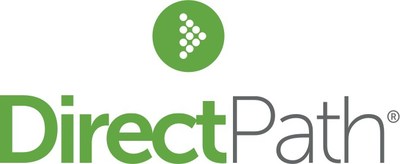New Data Shows Americans Continue to Struggle with Health Care Literacy
On September 28, 2021, DirectPath released the '2021 Consumer Report,' revealing that 55% of consumers are unaware they can compare health care costs before seeking treatment. The report, based on a survey of over 1,050 insured individuals, highlighted significant gaps in health care literacy: 31% reported receiving inaccurate medical bills, and 52% do not know how to dispute them. Despite the COVID-19 pandemic increasing attention to health care, many employees still rely on family or friends for information rather than employer resources. The report calls for improved benefits education and transparency.
- 34% of consumers utilized telemedicine for the first time, indicating an increase in adaptability to new care methods.
- Over 80% of employees who engaged in one-on-one discussions with HR found them extremely helpful, suggesting value in personalized benefits education.
- 55% of consumers do not know they can compare treatment or service costs before seeking care, indicating a lack of awareness.
- 52% of respondents are unaware of how to dispute an inaccurate medical bill.
- Only 37% of employees utilize employer resources for health plan education, with many turning to potentially unreliable outside sources.
Insights
Analyzing...
BIRMINGHAM, Ala., Sept. 28, 2021 /PRNewswire/ -- DirectPath, the company that guides employees to make better health care decisions, today released a new report, 2021 Consumer Report: All Eyes on Health Care – But Not Enough on Health Care Literacy. The second annual report, based on a survey of more than 1,050 people with employer-sponsored health insurance, revealed that
The COVID-19 pandemic has led to more people paying close attention to health care, but many still lack the knowledge required to make informed choices about their health plan and care. According to DirectPath's new report, almost one-third (
According to the Kaiser Family Foundation, almost half of Americans receive their health insurance through employer coverage. Yet, the DirectPath survey reveals that only more than one-third (
COVID-19 changed the way employees accessed information about their benefits, with
Receiving Care: When and Where
Not only did the pandemic change the way consumers received information about their care, but it also changed the way they sought care. Nearly one-quarter (
These shifts in the way care and information about care is delivered should raise questions for employees regarding how they choose and use their benefits. While
Knowledge gaps in health insurance literacy – the degree to which individuals have the knowledge, ability and confidence to evaluate, choose and use their health plan – is a root cause of many poor health care decisions which lead to lower quality care and higher costs. For example:
- Only
23% of survey respondents report taking advantage of cost-comparison solutions offered by their health care carrier. 57% report they only check if a provider is in-network when they plan to visit a new provider or facility, and25% only do so when their health plan changes.- Of the respondents who were aware that they received an inaccurate medical bill within the past three years, an alarming
7% admitted they knowingly received an inaccurate medical bill and did nothing about it – with52% of those people failing to take action because they didn't know they could.
"Despite the COVID-19 pandemic drawing attention to health and health care more than ever before, employees still do not understand what they can do to get the most from their plans and to manage their costs. For something that touches not only consumers' personal health, but also their financial well-being, most are woefully unprepared to take control," said Kim Buckey, vice president of client services at DirectPath. "Providing individualized support is critical to 'making it real' for employees, so they can learn to improve health care decision making and health plan use.
"While this survey shows some progress in employee understanding of how their plans work, too many still don't grasp why – or how – they should learn to use their plans. Increased one-on-one benefits education and more transparency in the health care industry are critical to ensuring employees are able to choose and use their plans effectively."
For more information about the health care literacy gap, download the DirectPath report.
Methodology
DirectPath conducted an online survey of more than 1,050 U.S. based people with employer-sponsored insurance (excluding those who work in the insurance industry). The survey closed in July 2021.
About DirectPath:
DirectPath, a CNO Financial Group company, guides employees to make better health care decisions with individualized education for selecting the right benefit plan, expert assistance in making informed care choices and rewards for sensible financial decisions. Its customers experience significant ROI on their benefits investments through increased employee participation, management of the evolving regulatory environment and reduced cost through health care cost transparency. DirectPath has offices throughout the country. For more information, visit the DirectPath website and follow the company on Twitter.
![]() View original content to download multimedia:https://www.prnewswire.com/news-releases/new-data-shows-americans-continue-to-struggle-with-health-care-literacy-301386228.html
View original content to download multimedia:https://www.prnewswire.com/news-releases/new-data-shows-americans-continue-to-struggle-with-health-care-literacy-301386228.html
SOURCE CNO Financial Group








